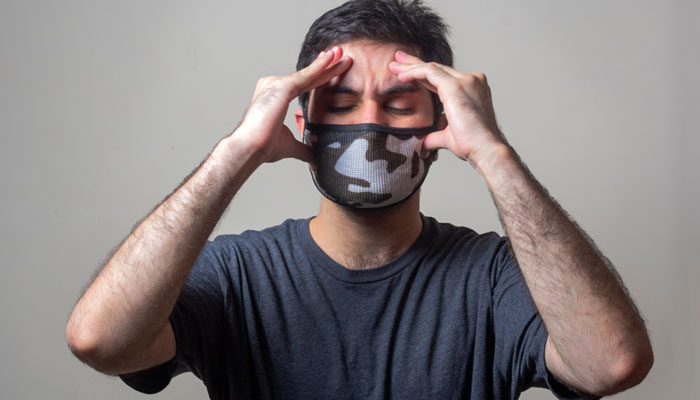Cannabis can be a powerful drug. But can you overdose on marijuana?
According to the Centers for Disease Control and Prevention (CDC), the answer is no. The fact of the matter is a fatal marijuana overdose is unlikely. You can’t just take a bunch of edibles at once or smoke an entire joint in one sitting and die. It’s more likely that you’ll vomit than get sick enough to stop breathing or have your heart stop beating altogether.
Willy Nelson is quoted saying that the only way to die from too much cannabis is if a bale of it were to fall on you. So, let’s talk more about what will happen if you consume too much marijuana!
Cannabis Overdose: How Much is Too Much?
In the U.S., there are no known cases of marijuana OD death due to respiratory depression as with opioids like heroin, fentanyl, oxycodone, etc.; but in theory, it could happen if someone smoked an entire pound of high-potency marijuana all at once or ate many times the recommended dose of an edible.
Signs of using too much marijuana can include feeling anxious, getting a dry mouth, rapid heart rate, and having trouble remembering things. But these side effects aren’t taken into consideration by the National Institute because they won’t kill you.
Excessive consumption of the primary psychoactive component in marijuana and other drugs can lead to a panic attack, unintentional injury, and accidental death. But it’s not the drug itself that kills.
So, is marijuana toxicity a thing? Yes, you can get and feel very sick to the point that it becomes a medical emergency. However, cannabis use itself isn’t going to cause a person to die.
What Happens if You Overdose on Cannabis
Can you OD or die from smoking marijuana? It can be difficult to overdose or die from smoking weed. You can’t just smoke and die from marijuana use. A fatal marijuana overdose is unlikely in America, though it can happen with edibles and high-potency concentrates like hash oil.
The most common stories of marijuana OD usually involve someone eating too many edibles and then vomiting or passing out. But can you really die from an edible, like a cookie, brownie, candy bar, etc.? Again the answer is no.
Potent marijuana can cause anxiety, paranoia, dizziness, and hallucinations, but it’s unlikely that the person would actually OD on anything.
Even if someone did eat a whole pound of ice cream in one sitting, they’d probably just throw up before they could die.
For adults, an OD can include increased heart rate, nausea, and vomiting, resulting in dizziness or fainting. In extreme cases, it can lead to a coma. Occasional users who eat too many edibles can experience these effects.
Children can have more effects because they might not know how to tell if their high is becoming too strong or can’t communicate with adults when it’s happening. Calling 911 right away can save a child from having an overdose, but the child will need medical attention in any case.
As we know, it’s not possible to die from ingesting too much THC. You can’t just take 400mg of THC at once and die either because it can take a few hours for the THC to get into your system when you eat it. If someone ate enough of an edible or smoked 400mg of hash oil, they might be able to overdose from marijuana.

Marijuana Overdose Symptoms
Cannabis products contain high levels of THC, the chemical that makes you feel high. Marijuana overdose symptoms can vary from minor to dangerous but can be pretty unpleasant. Some symptoms can include:
- Feeling anxious, agitated, or paranoid;
- Panic attacks or rapid heart rate;
- Extreme confusion;
- Sweating;
- Chest pain;
- Severe nausea and vomiting;
- Increased heart rate;
- High blood pressure or increased blood pressure;
- Racing thoughts and paranoia can also occur with a THC overdose;
- Headache;
- Pale skin.
Marijuana Addiction Treatment
It can be challenging to know if you have a marijuana addiction or not. But marijuana can still cause some pretty intense withdrawal symptoms that make it hard for people who use the drug every day to stop using it. Many people can quit after they’ve been sober for just a few days, but others struggle with cravings and anxiety when they try to go without marijuana.
Marijuana addiction can even lead to the person losing touch with reality because of how their brain has changed over time from chronic use of this drug.
Side Effects of Marijuana Abuse
It can be tempting to think that marijuana is harmless, but it can have some serious side effects. Besides the potential for addiction, marijuana can lead to psychosis and can cause a person to become more aggressive. It can also increase your risk of heart attack or stroke if you smoke it with tobacco.
Although many people don’t experience any negative consequences from using marijuana, others may find themselves struggling with depression or anxiety after they stop taking it. And even though there are no fatal overdoses on record as far as we know, smoking too much at once could result in an unpleasant high followed by vomiting and passing out (which would technically count as an overdose).
Despite these risks, many people still use marijuana because they enjoy its psychoactive properties: mood elevation, relaxation, and increased creativity.
Other Adverse Effects on Marijuana Use
Some serious adverse effects on marijuana use can include:
- Addiction;
- Increased risk of psychosis or aggressive behavior;
- Heart attack or stroke if smoked with tobacco.
The long-term effects can include:
- Anxiety;
- Depression;
- Decreased motivation after stopping use.

Marijuana Intoxication: Causes and Effects
The most common symptom of marijuana intoxication is the feeling of being high, which usually starts about fifteen minutes after use begins and can last for hours afterward. It can also make you throw up and can even lead to serious health conditions if too much is consumed.
However, there’s not much evidence that marijuana can cause long-term effects or death. That is, unless it leads to vomiting so much that your body can no longer function properly.

How Can You Avoid an Overdose
Overdosing is highly unlikely. The sheer amount of cannabis necessary to make this happen makes it pretty challenging. However, edibles could result in an overdose. This is why safe practices are crucial.
Eat one edible and wait for at least two hours (or less for beginners). the biggest mistake you could make is thinking that your edible isn’t working and eating another.
Here are some other tips to consider if you want to make sure your good time doesn’t go bad:
- Don’t smoke or vape marijuana if you can’t handle it well, and don’t drive high.
- Eat an edible for a slow-climbing high. Smoking and vaping will hit you much faster.
- Be careful with kids in your home. Keep any edibles out of reach and store them safely where children can’t find them.
- Don’t eat too many at once; this can cause you to be uncomfortably high.
- Don’t mix cannabis with any other drugs, including alcohol.
Cannabis Addiction Treatment
One can be addicted to marijuana if one consumes it in a manner that is similar to cigarettes and alcohol. Marijuana addiction treatment can involve various types of therapy, abstinence, and medication options.
To maintain sobriety, an individual can join chatrooms or participate in group therapy sessions held by professionals. Please be aware that this article is not a substitute for professional medical advice, diagnosis, or treatment. If you seek professional help, please get in touch with American Addiction Centers at (888) 744-0069.

Can You Overdose on Marijuana?
Can you overdose if you have mental health disorders? No, it is not possible to die from overdosing on cannabis alone. While young people struggling with symptoms of mental health problems might end up as patients in an institute on drug abuse, their recovery journey will likely involve treating mental disorders as opposed to substance use.
If someone with a mental illness takes more than they can handle, they can experience delusions and paranoia. This may lead the person to feel flat or emotionless, and withdraw from other people. They also might need treatment for substance use disorder in addition to other mental health concerns common among psychiatric patients.
While it’s impossible to abuse this substance and it can be dangerous, the health concerns surrounding its use are somewhat justified. But overdosing on marijuana is quite unlikely, even with a mental addiction to the leafy drugs.
Unlike alcohol addiction, marijuana addiction isn’t a dangerous killer. While treatment could still be necessary as the active ingredient is psychoactive, American addiction centers are usually more focused on providing treatment for the underlying mental health conditions.
Drug Abuse Hotline
Around 30% of cannabis users abuse marijuana, and abuse is a risk factor for OD. This hotline can be a resource to receive immediate assistance. It can provide information about getting clean, treatment options, and can even find a rehab center.
There are many different types of resources available for those seeking help for themselves or looking to help a loved one who is battling with substance abuse.
If you or anyone you know consume an excessive amount of marijuana, please seek medical professionals for help or reach out to the Substance Abuse and Mental Health Services Administration, or call 911 if you need a medical emergency.
Concluding on Legal Cannabis & Overdose Concerns
So, can you overdose on marijuana? According to the National Institute on Drug Abuse, a government agency that researches drug use and addiction, the answer is ‘no.’
At this point, there is no diagnostic and statistical manual, nor are there any reports of fatal cannabis overdoses. But it is possible to get sick from taking too much of this drug.
If this happens with your legal buds, don’t worry! You will not have a fatal overdose. However, you may feel quite sick and need some treatment.
While the panic attacks might be intense, the worst that can happen is you’ll feel a bit nauseous, vomit, fall asleep, and feel groggy in a couple of hours.
Keep in mind that Alpacannabis does not provide medical advice, diagnosis, or treatment. The content of this article is for information and educational purposes only.





